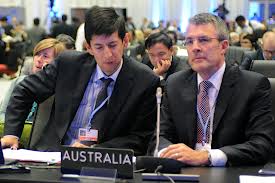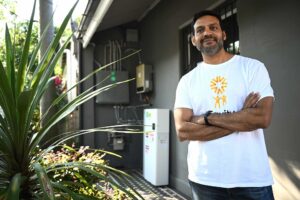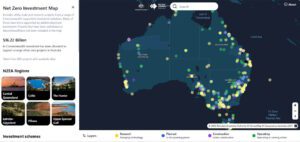Australia is expected to come under growing pressure in the coming year to raise its emissions reduction target from its current level of 5 per cent, as negotiations accelerate to try to achieve a global treaty on climate change that binds all nations by 2015, and meets the science.
Australia’s official position at the international climate change talks is to have a range of ambition from a 5 per cent reduction in 1990 emissions by 2020, out to 25 per cent, depending on what other countries do.
The Climate Institute is one of several groups that argues that action by other nations, including China and the US, justifies Australia to move to 10-15 per cent. This estimate has been supported by separate analysis by former government climate change advisor Ross Garnaut and the Australian National University.
However, Mark Dreyfus, the parliamentary secretary for climate change who led Australia’s team in Doha, told RenewEconomy at the conclusion of the dramatic final plenary that there was no case for Australia lifting its ambition just now. “The circumstance are not yet there,” he said.
If not in 2013, the crunch year will come in 2014. That is when the Climate Change Authority delivers its first report on Australia’s ambition, and this will be in the same year as the IPCC delivers its next assessment of the climate change science, and UN president Ban Ki-moon gathers world leaders in a summit focused on raising emission reduction targets before 2020. It is hard to imagine Australia concluding 2014 with a target as weak as its current 5 per cent reduction.
Dreyfus said he was satisfied with the outcome of the talks – despite their lack of ambition – describing them as a “working COP” (in reference to the Conference of the Parties).
“We achieved what we set out to achieve,” he said. “We are on track as comfortably as we can be for 2015.”
Australia has in the past been portrayed as a spoiler at these negotiations – famous for the “Australia” clause that allowed it to actually increase its target in the first period of Kyoto, and then for not signing the document until Kevin Rudd was elected.
At Doha, however, Australia was seen as a mostly constructive influence – it had, after all, succeeded in implementing its domestic carbon price and is the only nation outside of Europe to sign up to the second period of the Kyoto Protocol. It was happy to allow frustrations to be vented towards New Zealand and Canada, which overshadowed questions over Australia’s own level of ambition, or its contribution to the climate fund which was such a flashpoint at the meeting.
It also played a key role in the dramatic last hours of the negotiations, which were all about isolating Russia from its eastern European allies on the issue of hot air. The last week of the talks had been dominated by financing issues on one hand, and the treatment of an estimated 13 billion of surplus credits that remained from the first period of the Kyoto Protocol, and which threaten to offset all the gains from the second period, and could yet dilute a future treaty. Some form of agreement was found on finance – essentially to delay its resolution for another year – but Russia was not going to concede.
In the dramatic last few hours, Europe was tasked to bring Poland into its fold, while the Umbrella group led by Australia was tasked to assuage Belarus, the Ukraine and Kazakhstan. Hurried meetings were held between ministers on the plenary floor, and in adjoining rooms, while the secretary of the Department of Climate Change Blair Comley could be seen haggling with counterparts on the podium in some last-minute negotiations.
At the end, the ploy succeeded. Qatar had been criticised for its ponderous leadership of negotiations – the Qatari president kept on repeating that he just lived down the road and was happy to continue for weeks, if not a year – but finally gaveled the agreement through the plenary.
Russia objected strongly, but it had been successfully isolated and gained no support. Australia also received a big round of applause at the end of the meeting when Dreyfus said the country would not purchase any of the excess credits to meet its own emissions reduction targets, a pledge matched by seven other countries, plus the 27 nations of Europe.








